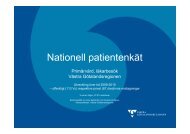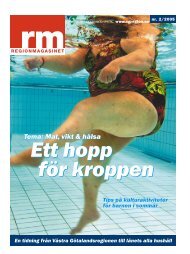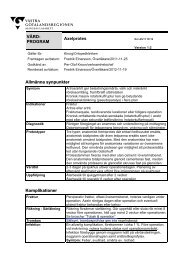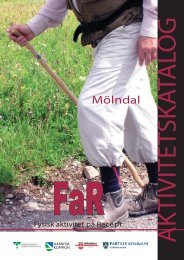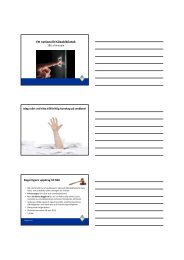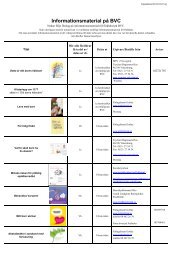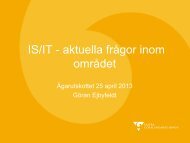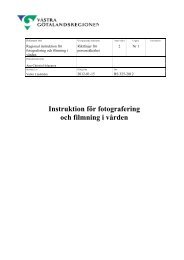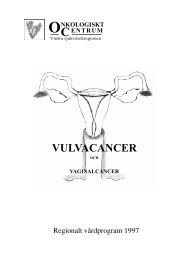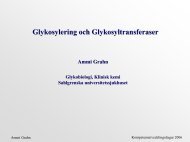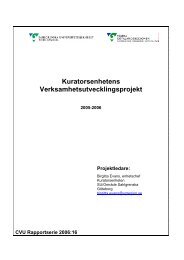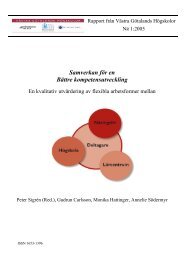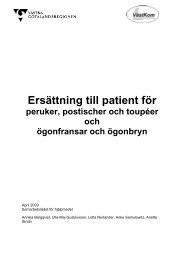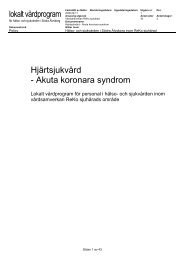FOURTEENTH ANNUAL EUROPEAN PRESSURE ULCER ...
FOURTEENTH ANNUAL EUROPEAN PRESSURE ULCER ...
FOURTEENTH ANNUAL EUROPEAN PRESSURE ULCER ...
Create successful ePaper yourself
Turn your PDF publications into a flip-book with our unique Google optimized e-Paper software.
Thursday September 1st<br />
Proceedings of the 14th Annual European Pressure Ulcer Meeting<br />
Oporto, Portugal<br />
A Different Type of Expertise; patient and public involvement in pressure ulcer research<br />
Introduction<br />
Recent healthcare reforms in the UK have pushed for<br />
a more patient centred National Health Service (NHS),<br />
where pateints play a central role in their own care and<br />
have more choice about the services they use.<br />
Patients and carers are increasingly being recognised<br />
as experts by experience as they live with conditions<br />
on a day to day basis. This cultural change is being<br />
reflected in healthcare research. Patient and Public<br />
Involvement (PPI) in research is widespread in the UK<br />
and researchers are now required to demonstrate<br />
active PPI at all stages in the research process.<br />
INVOLVE, the Department of Health funded PPI<br />
advisorary body, describe 3 levels of involvement,<br />
Consultation: Seeking people’s views and ideas and<br />
using these to inform decision making.<br />
Collaboration: Active, ongoing partnership in which<br />
patients and the public are involved in the research<br />
process.<br />
User control: People who use services are in charge<br />
of the research.<br />
Many funding bodies now require researchers to<br />
demonstrate a minimum level of PPI as early as the<br />
grant application stage.<br />
PPI is a growing field and involvement in pressure<br />
ulcer research is perhaps less developed in<br />
comparission to other areas. This is partly due to the<br />
lack of existing patient groups or charities with a<br />
pressure ulcer focus. Also the complex needs and comorbidities<br />
which much of the pressure ulcer<br />
population experience makes recruiting and supporting<br />
people challenging.<br />
Methods<br />
To combat this, the Leeds Clinical Trials Research<br />
Unit (CTRU) have brought together patients, carers<br />
and family members with personal experience of the<br />
prevention or treatment of pressure ulcers to form a<br />
network. This is known as the UK Pressure Ulcer<br />
Research Service User Network (PURSUN).<br />
We have taken a flexible, asset based approach to<br />
involvement which allows network members to take on<br />
varying roles depending on their skills, needs and the<br />
level of commitment they feel able to give.<br />
Network members are prepared and supported by a<br />
dedicated PPI officer. Preparation includes a series of<br />
Delia Muir 1* , Jane Nixon 2<br />
1* University of Leeds, UK, d.p.muir@leeds.ac.uk<br />
2 University of Leeds, UK<br />
89<br />
workshops based on the Patient Learning Journey<br />
Model [1].<br />
The structure and terms of reference for the network<br />
have been developed collaboratively with network<br />
members.<br />
Results<br />
Members of PURSUN are now actively involved in<br />
pressure ulcer research at CTRU and beyond. So far<br />
their activities have included:<br />
• Contributing to the development of a new clinical<br />
trial, including one member being a co-applicant.<br />
• Sitting on the Pressure Ulcer Programme of<br />
Research (PURPOSE) steering committee and<br />
sub groups.<br />
• Contributing to the development of a Pressure<br />
Ulcer Minimum Data Set (PUMDS) and Risk<br />
Assessment Framework (PURAF)<br />
• Helping to develop a patient focused website<br />
Discussion<br />
Members of PURSUN have been able to use their<br />
personal experiences of living with pressure ulcers and<br />
accessing healthcare to inform research. This is<br />
something which researchers have found very usuful.<br />
By working in partnership with academics and<br />
clinicians network members bring a different and<br />
valuable perspective to the research process. This can<br />
help to ensure that research is grounded in real world<br />
experineces and is relevenat to the people it is<br />
ultimately aiming to benefit.<br />
Clinical relevance<br />
PPI in pressure ulcer research can help to ensure that<br />
research is relevant to the public and has an impact in<br />
the clinical environment.<br />
Acknowledgements<br />
We would like to acknowledge all members of the<br />
PURSUN network and the PURPOSE project team.<br />
Conflict of Interest<br />
None<br />
References<br />
[1] Morris P, Dalton E, McGoverin A and Symons J.<br />
Preparing for patient-centred practice: developing the<br />
patient voice in health professional learning, In:<br />
Bradbury H, Frost N, Kilminster S, Zukas M. Beyond<br />
Reflective Practice, Routledge, Oxford, 2009.<br />
Copyright © 2011 by EPUAP



